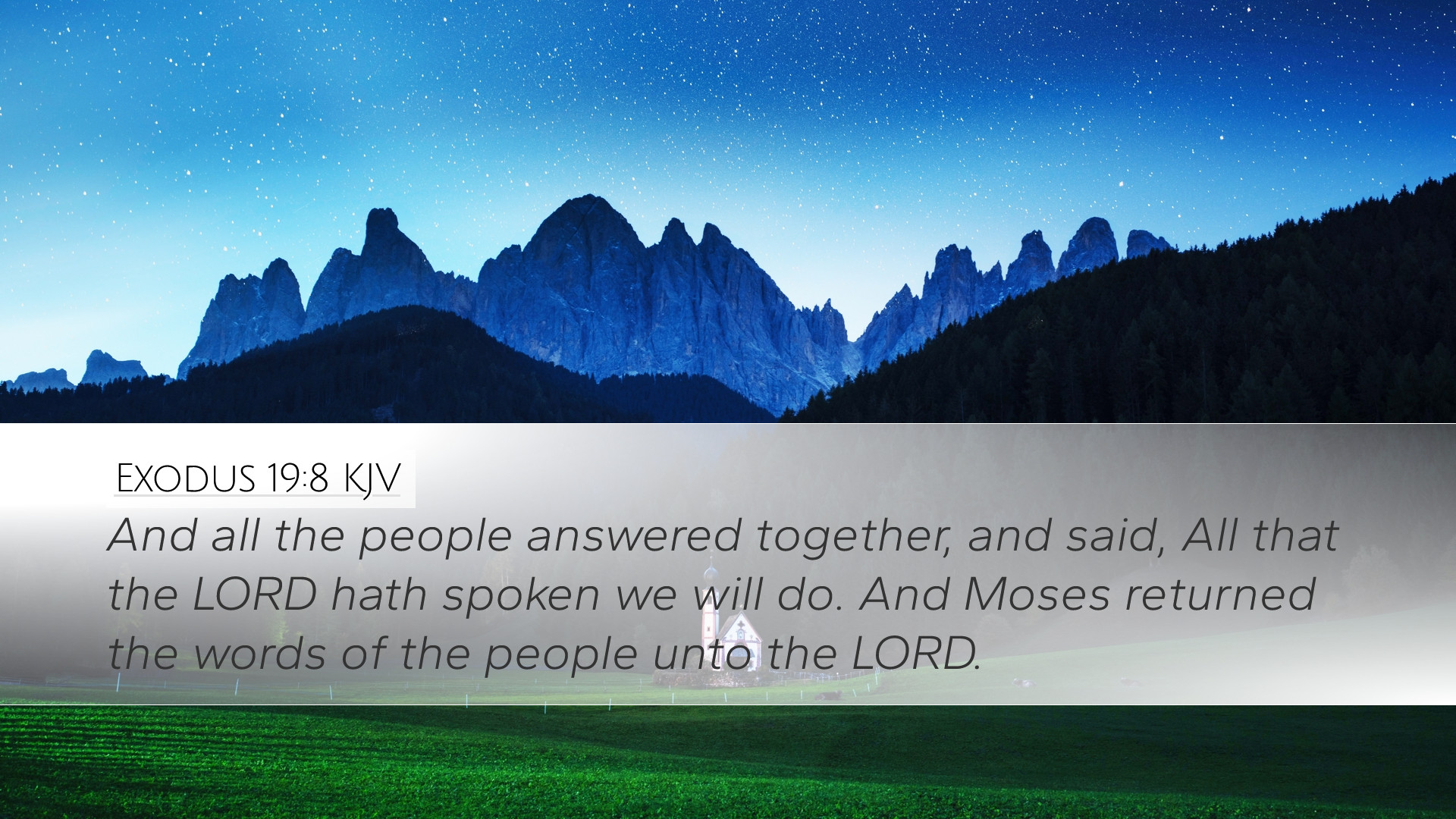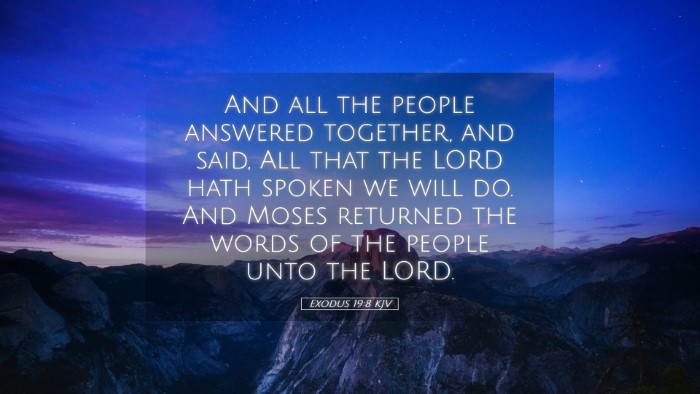Exodus 19:8 - Commentary
Verse: "And all the people answered together and said, All that the LORD hath spoken we will do. And Moses returned the words of the people unto the LORD."
Context and Background
Exodus 19 marks a significant moment in the narrative of Israel's journey from Egypt to the Promised Land. The children of Israel have come to Mount Sinai, where they will receive the Law—a covenant that defines them as God's chosen people.
This verse comes after God has initiated a dialogue with Moses, proclaiming His intention to establish a covenant with Israel. The people's response here is crucial, as it marks their collective commitment to obey God's commandments.
Responses to the Divine Call
- Unanimity of Response: The phrase "all the people answered together" suggests a unifying moment for the Israelites. It reflects their collective identity and agreement to follow God's will.
- Commitment to Obedience: The declaration "All that the LORD hath spoken we will do" signifies not only willingness but also an anticipatory faith in God's instructions. This responsibility takes precedence and invites theological reflection on the nature of human obedience to God's commandments.
Theological Implications
Human Response to Divine Initiation: The order of events—God's speaking followed by the people's response—illustrates a fundamental biblical principle: divine initiative precedes human obedience. Theological scholars often highlight this when discussing the nature of covenant relationship.
Grace and Law: In this passage, as articulated by Matthew Henry, we see the interplay between law and grace. The Israelites' promise can be seen as an acknowledgment of divine grace, which beckons a human response. Their acceptance of the covenant at Sinai is a formative moment for the people of God.
Collective Responsibility: Albert Barnes elucidates that the Israelites’ response goes beyond individual commitments; it encapsulates community obligation. This notion raises questions about corporate responsibility in faith contexts today and the implications for church community today.
Challenges and Shortcomings
Though the commitment expressed in this verse is strong, subsequent events in the narrative reveal the fragility of their promise. Adam Clarke remarks on the hypocrisy that appears later when the Israelites falter in their obedience. This foreshadows the struggles of humanity to maintain fidelity to divine commandments.
- Human Fallibility: The often-repeated cycle of commitment and failure in the Old Testament showcases the complexities of human nature and the constant need for divine mercy.
- Foreshadowing of the New Covenant: While Israel pledges obedience, the later narrative, especially in the Gospels, emphasizes that true obedience relies on grace and not merely human effort.
Application for Present-Day Believers
This verse retains profound implications for contemporary faith communities, calling leaders and congregants alike to consider their responses to God’s words. The phrase "we will do" is familiar in many churches today, often recited in commitment ceremonies or worship services.
- Call to Commitment: It challenges individuals and congregations to reflect on their promises to God. Are they verbal proclamations or genuine resolves?
- Understanding Covenant: The passage invites a deeper study of the covenantal relationship between God and His people, encouraging a restatement of commitment not merely out of duty but in response to God's ongoing grace.
- Community and Accountability: This collective vow emphasizes the importance of accountability within the church as a body of believers. How can modern churches facilitate support in honoring commitments?
Conclusion
Exodus 19:8 serves as a powerful reminder of the expectations placed on the people of God and the reality of human experience in relation to divine will. Drawing on insights from public domain commentaries reveals layers of meaning—from the joyful acceptance of the covenant to the sobering reality of human imperfection. For pastors, students, theologians, and Bible scholars, this verse invites deep reflection on the nature of commitment, the character of God, and the journey of faith.


